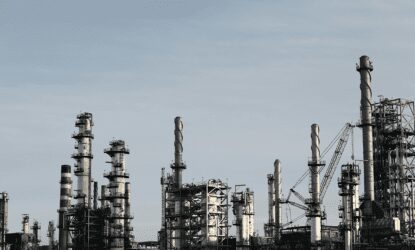 Using CDP as a tool to report on ESG strategy
Using CDP as a tool to report on ESG strategy
“As the CSRD evolves, companies must stay proactive in aligning with new requirements, turning compliance into a driver of long-term sustainability performance.”
As the original timelines of the EU Omnibus draw nearer, the Corporate Sustainability Reporting Directive (CSRD) continues to evolve, with recent changes impacting its scope, timelines, and reporting standards.
It is essential for companies to stay updated on the legislative process, transposition deadlines, and evolving ESRS requirements to ensure they remain compliant and prepared for upcoming reporting obligations.
For background on the Omnibus proposal, you can explore our earlier articles here and here. While these provide useful context, the insights in the article below reflect the most up-to-date developments.
Legislative process: The scope and applicability of CSRD
Current stage
Regarding the proposed changes to the scope of the CSRD (as part of the ‘Detailed Directive’), the legislative process is reaching its final stage. The Council of the EU has approved its general position (its negotiating mandate), and the European Parliament’s Legal Affairs (JURI) Committee Rapporteur has submitted their draft report.
Next steps
The next critical steps are a formal vote within the JURI Committee, scheduled for October 2025, followed by a Plenary Vote later that month. Once Parliament adopts its final position, the crucial Trilogue negotiations between the Commission, Council, and Parliament will commence, likely starting in late 2025 or early 2026, to finalise the new definitions of which companies fall under the CSRD.
Scope adjustments
Both the Commission and the Council supported raising the mandatory CSRD employee threshold from 250 to 1,000 employees, with the Council also adding a higher net turnover requirement (€450M) to further reduce the scope of in-scope companies.
‘Stop-the-Clock’ directive: The timeline relief for CSRD
The ‘Stop-the-Clock’ Directive has been adopted and provides concrete relief to companies due to report under the CSRD. It formally postpones the application of CSRD reporting deadlines by two years for Wave 2 (large non-listed companies) and Wave 3 (listed SMEs) companies.
Transposition deadline
The immediate deadline here is the 31st December 2025 deadline for all EU Member States to transpose this directive into national law. As of September 2025, several jurisdictions have already transposed the delay, including France, Estonia, Lithuania, Poland, and Ireland.
ESRS update: Focus on standardisation and simplification
The focus for the European Sustainability Reporting Standards (ESRS), which underpin the CSRD, is firmly on simplification and easing the reporting burden. EFRAG’s proposed simplified ESRS drafts were released in July.
Key simplifications
- Data Point Reduction: EFRAG’s proposed amendments achieve a substantial simplification, cutting the total number of disclosures (mandatory and voluntary) by approximately 68% and reducing mandatory data points by 57%.
- Double Materiality: The process is streamlined from a checklist-style approach to a more strategy-driven, top-down assessment, requiring only reasonable and proportionate evidence to support materiality conclusions.
Watch our on-demand video about DMA best practices to stay on track.

Consultation timeline
The revised ESRS drafts are currently open for public consultation (until September 29, 2025), after which EFRAG will provide its final recommendation to the Commission by November 30, 2025. The goal is a significant reduction in data points and clarification of the double materiality assessment process, ensuring companies can focus on the most relevant disclosures.
How Nexio Projects can help
Navigating the CSRD and its evolving requirements can be complex. This is where Nexio Projects provides dedicated support. Through our CSRD and reporting solutions, we help organisations:
- Assess whether they fall within CSRD scope.
- Build robust ESG strategies aligned with evolving EU requirements.
- Implement tailored reporting systems to ensure compliance.
- Simplify data collection and prepare for ESRS-based disclosures.
Download our latest reporting guide to stay up to date with the current regulatory landscape!

Partnering with Nexio Projects means transforming regulatory compliance into a competitive advantage by embedding sustainability at the heart of your business.
Contact us today to learn how we can support your organisation in meeting CSRD obligations and future-proofing your ESG reporting journey.











